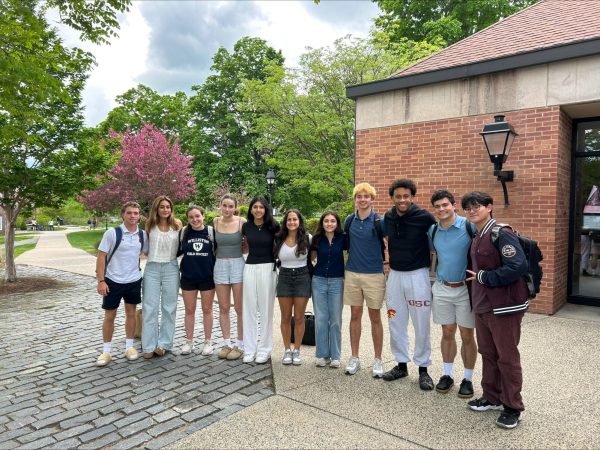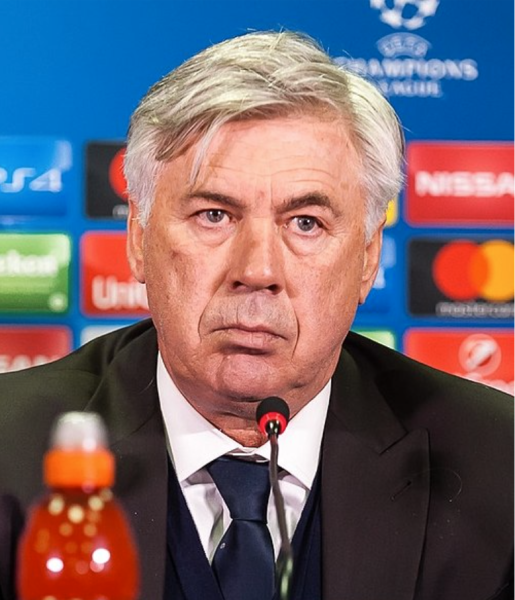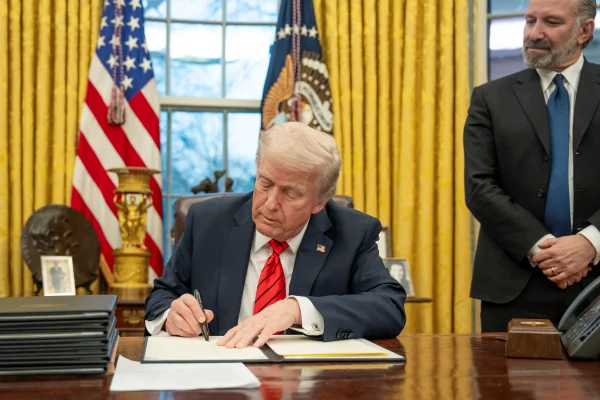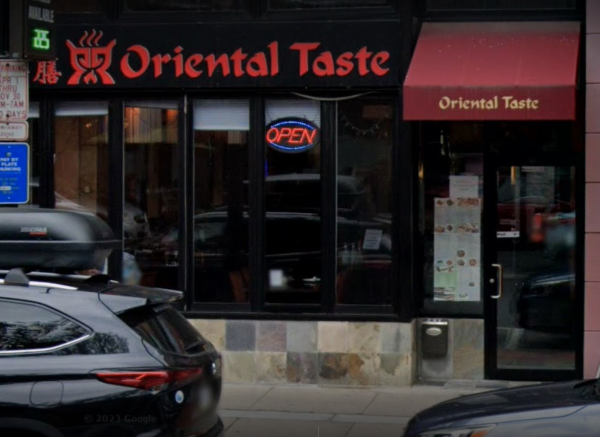Death Toll Rises as Venezuelans Continue Protests of Socialist Government
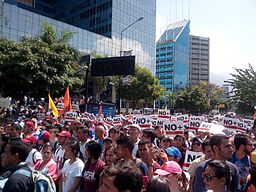
Demonstrators on April 6 holding signs saying “No more dictatorship.” Credit: Jamez42/Creative Commons.
[This story was written on May 16. On May 18, the U.S. announced plans to put sanctions on Venezuela.]
On Tuesday afternoon, May 16, it was announced that Venezuelan President Nicolás Maduro’s soldiers had killed four more men protesting the Socialist train wreck in his country. These deaths account for only a fraction of the bloodshed suffered during Venezuela’s latest wave of political unrest. According to Reuters, at least 42 protesters have been slain by Venezuela’s police force during this six-week period of inflamed tensions, which come following a power-grab by the Maduro-loyalists in the supreme court.
Even with the largest oil reserves in the world, Venezuela’s plight, both economic and otherwise, is precarious. And Venezuelans want answers. Before Socialism was the law of the land, Venezuela enjoyed a golden age unparalleled by its neighboring countries. But under the current Socialist framework installed in the late 90s by Hugo Chavez and maintained to this day by his handpicked successor, President Maduro, what was once South America’s richest country has devolved into a wasteland, riddled with violence, poverty, and starvation.
Like all Socialist countries eventually do, Venezuela has run out other people’s money. And the recessive economy that grew out of Chavez and Maduro’s redistributive racketeering policies has finally caught up with them. Those who were duped into voting it in are now suffering the inevitable consequences of Socialism. In 2016 alone, the country’s economy shrunk 18.6%. And by the beginning of this year, inflation had climbed to 800%, easily the highest rate in the world.
The country is not producing anything of value, and the government has nothing left to give to its suffering population. Even if protests to remove the leftist government of Maduro prove fruitful, the damage of Socialism has already been done. Violence and poverty are inescapable realities for Venezuelans, who fear for their lives every time they walk outside in search of the nearest mile-long food-distribution line.
Homicide increased 400% under Chavez, and the uptick hasn’t ceased since. According to the Venezuelan Violence Observatory, the 2016 Venezuelan homicide rate was the second highest in the world, with 92 murders for every 100,00 people. And the nation’s capital, Caracas, was named the most violent city in the world by the Citizens’ Council for Public Security and Criminal Justice. Venezuela is a war zone. And its violence is only exacerbated by a criminal justice system that, according to the Los Angeles Times, only produces convictions for 8% of the country’s murders. After all, if the government is financing every facet of society, it only stands to reason that there will be cutbacks on necessities, such as criminal justice, which are taken for granted in freer countries like America.
Unsurprisingly, many of the referenced crime statistics, which were found by nongovernmental organizations, have been disputed by the Venezuelan government, which ceased publication of official crime statistics in 2003—another suspicious reallocation of resources. But Maduro’s government’s slender allocation of crime-fighting resources is certainly made up for by its exhaustive allotment of resources spent on economic reform.
For example, Venezuela is notorious for its large-scale price controls, which have left supermarkets empty and Venezuelans starving. In 2016, a Wall Street Journal study of the Venezuelan food shortage concluded that three out of four Venezuelans suffered from involuntary weight loss of an average of 19 pounds. And images of Venezuelans waiting in mile-long lines for food handouts illustrate the prevalence of this problem.
Since the beginning of Venezuela’s experiment with Socialism, government shakedowns of Venezuelan businesses have disincentivized the growth of industry. And because of this self- inflicted economic stagnation, the centrally-planned economy has grown reliant on the government-run oil industry. So when oil prices fall, which they have, so too does the welfare of the Venezuelan populace.
Madurou is obviously praying for a rise in oil prices to save his presidency, but according to Matt Piotrowski of EnergyFuse.org, “oil prices are not projected to rebound to a level where Venezuela can repay its debts.” And even if oil prices do rise, the country’s reliance on OPEC is hardly grounds for a stable economy.
Venezuela is obviously lucky to have the most expansive oil reserves in the world. Had a country without the Venezuela’s resources been run the same way, the devastation would have been accelerated even further. But even with its natural bounty, Venezuela’s dependence on oil is wholly unsustainable. As Piotrowski said: “Until such a time as Venezuela relinquishes its increasing control over the oil and allows for a free moving market, oil dependence will continue to cripple the country economically.”
The experiment of Socialism in Venezuela has failed, as it always does. But the current wave protests are a light of hope for many Venezuelans. One can only pray that no more blood is shed in returning the country to her former promise.





